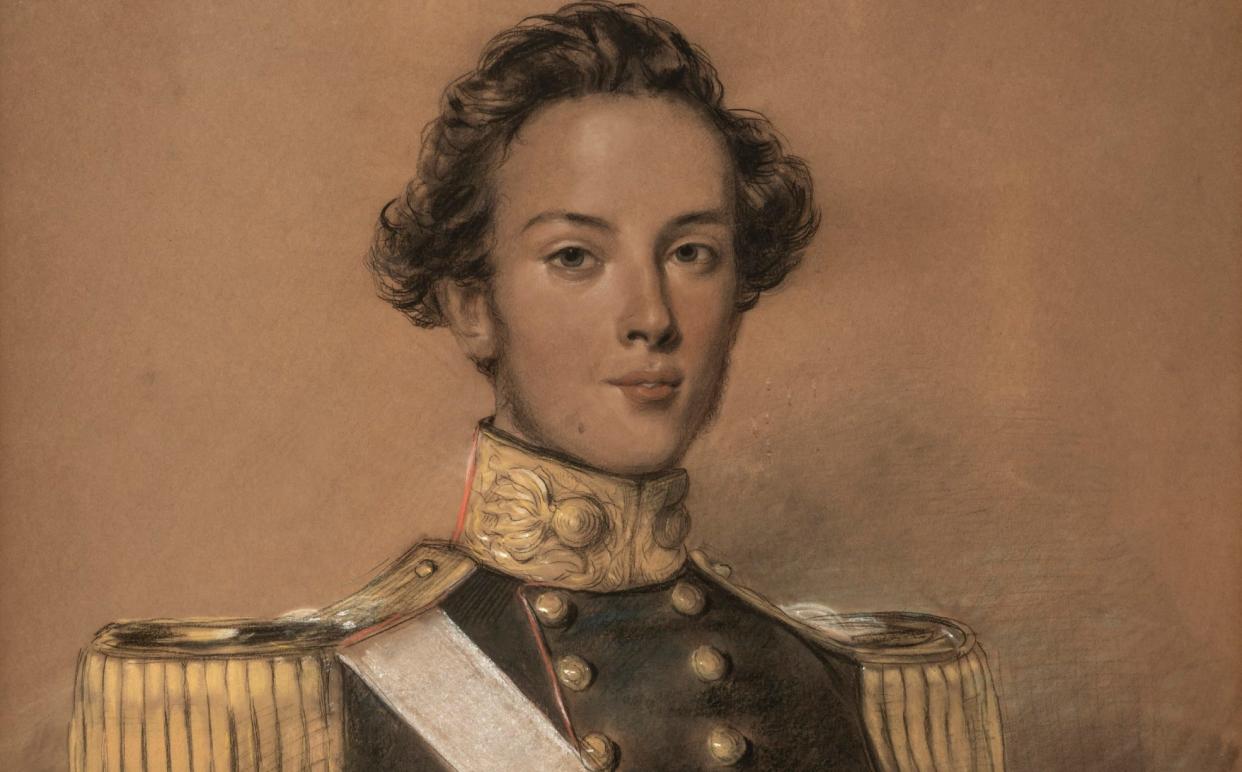Victoria Cross awarded to Indian Mutiny Army hero sells for £173,000

The Victoria Cross (VC) awarded to an Army hero who survived being shot in the foot, head and back has been sold by his family for £173,000.
Captain Hastings Harington risked his life rescuing a wounded soldier during the relief of Lucknow in the Indian Mutiny of 1857.
He sprinted towards an enemy gun which was firing at him from 25 yards and silenced it, then ran through a garden fire to reach the casualty who he carried to safety.
In a later attack at the same compound, a bullet entered his skull under his right ear, leaving him deaf, with lockjaw and unconscious.
His superior, Major-General Sir George Bourchier, said that such was his bravery he deserved two Victoria Crosses, which is the highest British gallantry award.
But at first it looked like he would miss out on even one as they presumed he was going to die and the VC could not then be awarded posthumously.
A comrade said that Capt Harington, who was devoutly religious and so disciplined he did not drink alcohol, was “prepared to meet his God” by giving his life in battle.
Sir George said: “A poor Drummer, wounded, was left for hours behind a wall in a garden.
“A hot fire was kept up on the garden.
“Harington with two others rushed out and brought in the wounded man.
“For this he was recommended for the Victoria Cross, but got it from the universal vote of his brother officers, to whom was given the pleasing task of electing the bravest of the number.
“Harington deserved two Crosses.”
Bidding war
Capt Harington’s medals, inscribed sword and other mementos sparked a bidding war at London-based auctioneers Spink & Son.
They achieved a hammer price of £140,000, with auctioneers fees taking the final figure paid by the undisclosed buyer to £173,600.
Marcus Budgen, head of the Spink & Son medals department, said: “The story of Captain Harington is perhaps one of the most inspiring of the Indian Mutiny.
“Having commanded his men with remarkable gallantry, he was dangerously wounded on no less than three occasions.
“Twice he was presumed killed outright and as a result, he was denied a Victoria Cross that had been confirmed he would be awarded, which at that time could not be awarded posthumously.
“It was said that he ‘deserved two Crosses’ – that shows you the mark of the man.
“Having been unanimously voted as being the deserving recipient of his Regiment, Harington returned to England to be presented this Victoria Cross from the hands of Queen Victoria herself.
“Never one to shy away from his duty and despite wounds which had not healed, he returned to the frontline and died from cholera.
“It goes without saying that his contribution and bravery were of the highest order. He was a true hero.”
Capt Harington, the son of a reverend, was born in 1832 and educated at Reading School and the Military College, Addiscombe.
He was commissioned into the Bengal Artillery in 1852 and served as a regimental officer in Peshawar and Sialkot.
He first saw action at Delhi following the rebel uprising of 1857 and took a bullet through the foot at Trimmu Ghat.
Capt Harington crossed the Ganges and headed on to Lucknow as part of Sir Colin Campbell’s relieving force.
Here, in November 1857, he carried out his VC-winning action, but days later during an attack at the same compound he was shot in the head.
He “miraculously” survived his injuries and returned to action at Secundra Bagh, where he was hit in the back with a musket ball while stooping down to fit a fuse.
Huge blood loss
He suffered huge blood loss and once again was not expected to survive, but pulled through against the odds.
That injury took him out of frontline action and he travelled to England to receive the VC from Queen Victoria in 1859.
After several operations, they finally managed to remove the shot from his back and he returned to India to serve with the Sikkim Field Force.
He was Adjutant of the 6th Battalion of the Bengal Artillery in Agra when he died from cholera aged 29 in 1861.
An army friend wrote movingly to Capt Harington’s parents of the loss of “the most gallant soldier and kindest friend he had ever met”.
R Hare’s letter, which is included in the archive, states: “I mourn the loss of one of my greatest friends. I knew your lamented son intimately; and a kinder friend, a more gallant soldier, I never met.
“He was, as you know, a true disciple of the Lord Jesus.
“I joined the Battery in which your son was then a subaltern, after the capture of Delhi; and on several occasions, we were detached together, with half the battery.
“I remember particularly at Bolundshuhur, after a shot from the enemy had disabled one of the guns of the other half battery, we were sent on in advance, under a heavy fire, and, as usual, his coolness and gallantry were conspicuous.
“He was prepared to meet his God we all knew.
“I was also with him when he so distinguished himself and won the Victoria Cross.
“When he was so dangerously wounded, and hardly expected to live, all the men were constantly telling us of his gallantry under fire.
“The regiment has lost one of its best members.
“I lived with your son at Simla for three months, when he was suffering so dreadfully from his third wound. His patience was remarked by us all; only those that lived with him had any idea of what he suffered.”

